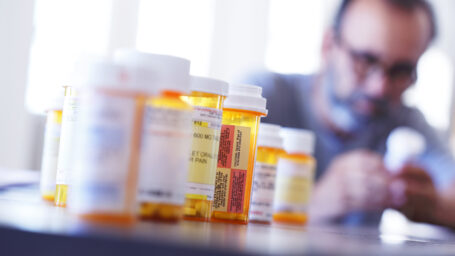Why is education about falls important?
- Over one in three people aged 65 years or older fall every year
- The risk of falling rises with age
- Falls often happen in the home (Example: Bathroom, Kitchen, Dining Room)
- Falls are usually the reason older adults go to the emergency room
- Having a fall can result in broken bones or other serious injury and result in hospitalization or disability
- Fear of falling can affect your mood and may limit your social activities
Medical problems can increase the risk of falls
Common problems include:
- Diabetes (High or Low Blood Sugar)
- High or Low Blood Pressure
- Parkinson’s Disease
- Heart Disease
- Thyroid Problems
- Nerve Problems
- Dizziness
- Weakness
- Confusion
- Visual problems (glaucoma, cataracts, macular degeneration)
Dizziness may signal something is wrong!
- Low blood pressure
- Low blood sugar
- Anemia
- (low blood count)
- High blood sugar
- High blood pressure
- Rapid or Irregular Heart Rate
- Stroke
- Very Slow Heart Rate
- Too Much Body Fluid Loss (dehydration)
What can you do?
- If you are dizzy, first, sit down immediately until the dizziness goes away.
- You or the caregiver should check your blood pressure.
- Check your blood sugar if you are diabetic (dizziness can occur if blood sugar gets too low).
- If blood sugar is low, drink or eat something with sugar, like juice or a hard candy.
- Report any dizziness to your doctor as soon as possible.
- When arising from a lying or sitting position, get up slowly
- Eat foods rich in iron (such as meat, beans, leafy veggies, dried fruit) to avoid becoming anemic.
- Take blood pressure medications as directed and do not stop taking them without the advice of your healthcare provider.
- If you are diabetic, pay close attention to your blood sugar.
- Drink at least 5 to 8 cups (small cups, not mugs) of water each day (staying hydrated is essential to good body health).
- Drink more fluids when you have diarrhea or a fever as both can lead to dehydration.
Medications that can increase the risk of falls
- Opioid pain medications (Example: Morphine, Hydrocodone, Oxycodone)
- Allergy medications (Example: Benadryl, Phenergan, Atarax, Claritin)
- Muscle relaxants (Example: Robaxin, Flexeril, Tizanidine)
- Benzodiazepines (Example: Ativan, Xanax, Halcion)
- Sedative-Hypnotics, Anti-Anxiety Medicines (Example: Sleep medications like Ambien, Restoril, Dalmane, Valium)
- Antidepressants (Example: Elavil, Sinequan, Pamelor)
- Cough Syrups (Example: Robitussin DM, Delsym, Vicks, Dayquil Cough) – These have opioid-like effects.
- Prescription Medicines to treat overactive bladder (Example: Ditropan and Detrol)
Before taking any over-the-counter medications like Tylenol PM, Benadryl, cough syrups, or other supplements, please talk to your doctor first. These medications may increase your risk for falls.
What can I do to protect myself from falls?
- Maintain regular physical activity & eat a balanced diet
- Keep bones & muscles healthy
- Get regular eye checkups (especially if you have changes)
- Limit alcohol intake and take your medications as prescribed
- Get adequate rest – a good night’s sleep is important!
- Check your blood pressure and heart rate regularly, and your blood sugar if diabetic (especially if you feel dizzy or weak)
- Tell your provider if your heart rate, blood pressure, or blood sugar are not in the normal range
- Keep well hydrated – drink 5-8 cups of water a day
Steps to take to prevent falls
- Wear proper shoes (low-heels, lace-ups, slip-on shoes that do not require laces, and shoes with non-skid soles).
- Use assistive devices (Example: walker) when feeling unsteady. Walkers and canes need to be prescribed by a provider or physical therapist for your height and gait and balance issues. It is better not to use anyone else’s assistive device.
- Discuss medication side-effects with your doctor (even over-the-counter medications and supplements).
- There are some medical alarms and devices that can be worn to allow persons at risk for falls to feel safer.
- Reduce clutter on floors & in kitchen including loose cords
- Ensure adequate lighting (keep a light on)
- Have grab bars in the bathroom near toilet, tub/shower
- Have handrails on both sides of the stairs
- Do not use throw rugs or small area rugs
- Do not climb a ladder or stand on a chair or table
- Do not sit on chairs that have roller wheels
- Avoid carrying large or heavy items or pets up and down the stairs
Download the printable Fall Prevention Booklet
References:
- nia.nih.gov/health/prevent-falls-and-fractures
- ncgi.nlm.nih.gov/pmc/articles/PMC5915247/
- ncoa.org/health-aging/falls-prevention/
This publication was made possible by Grant Number 1H79T1083287-01 from Substance Abuse and Mental Health Services Administration (SAMHSA) and the Arkansas Department of Human Services Division of Aging, Adult, and Behavioral Services (DAABHS).





